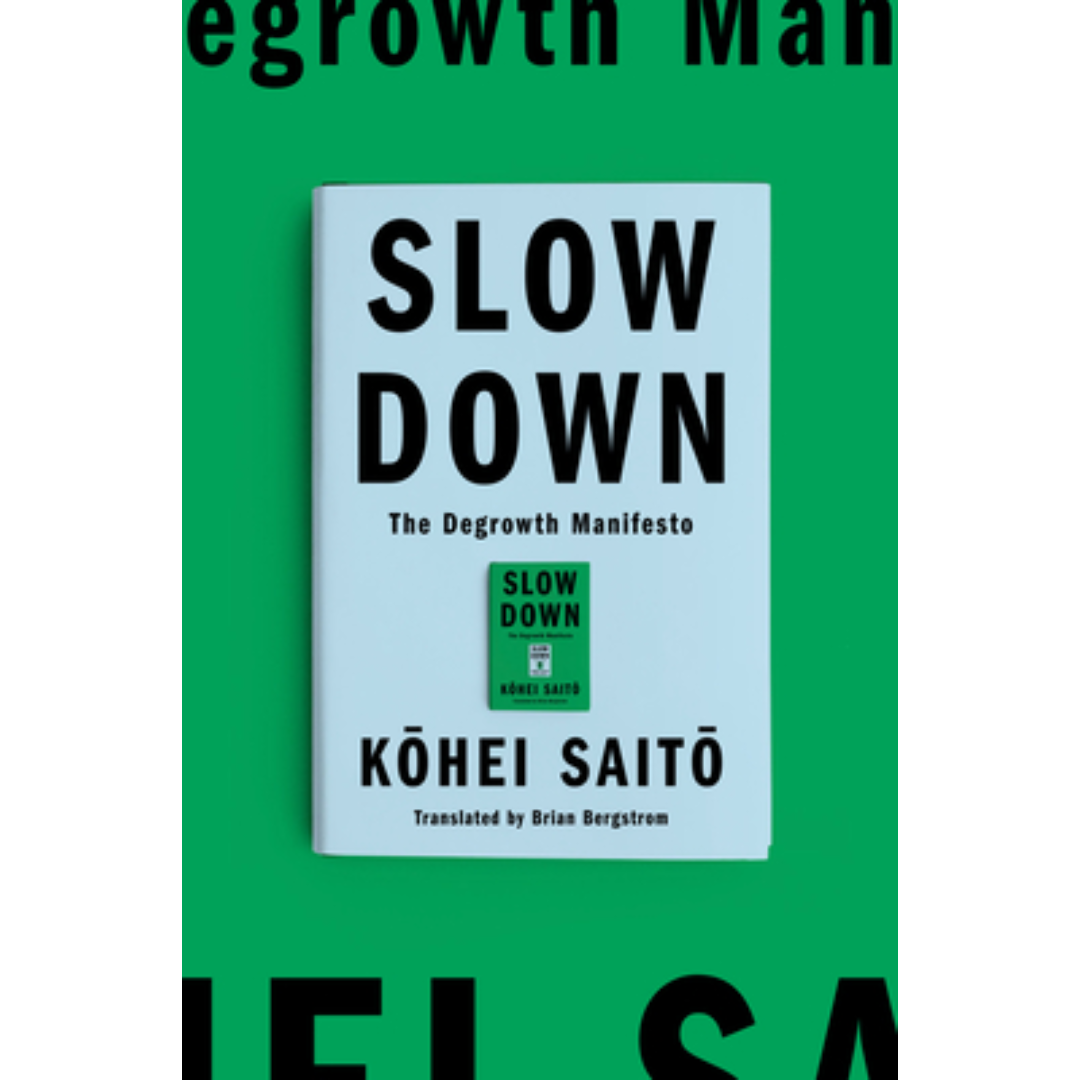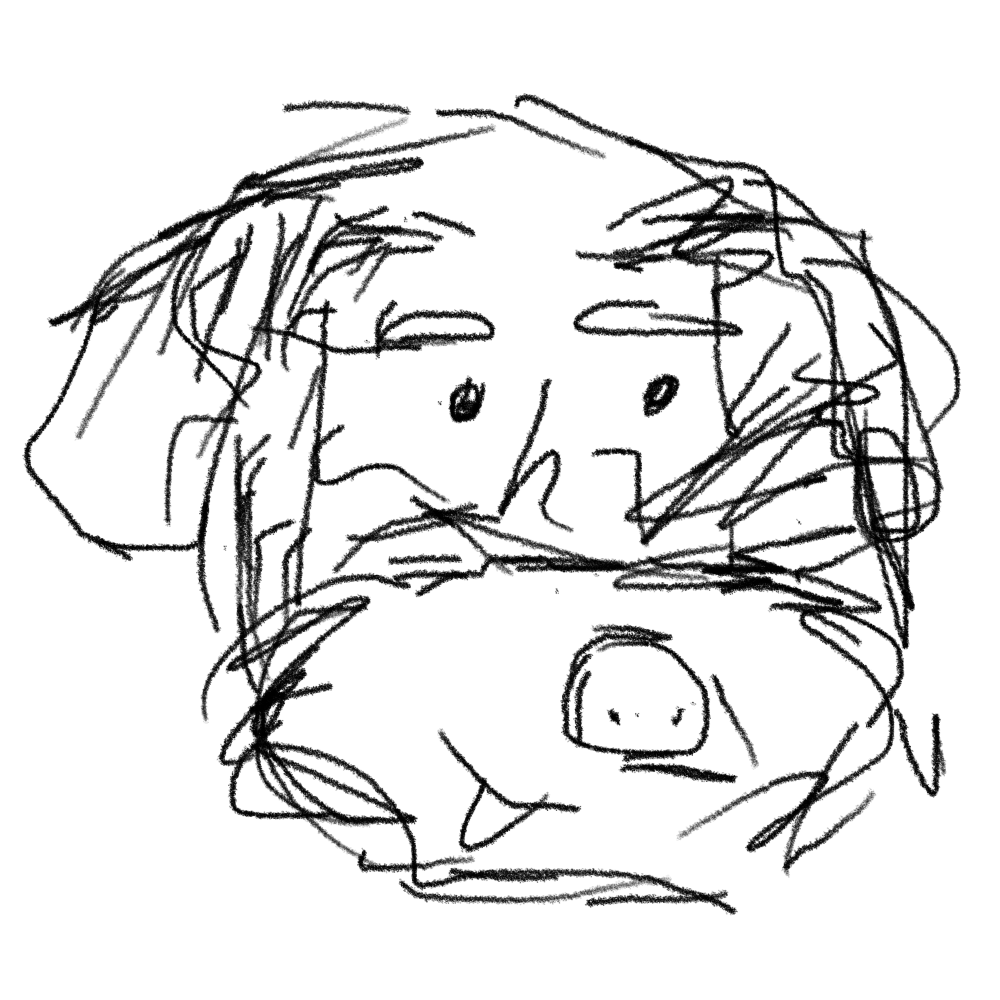
Après moi, le déluge
The greatest threat to humanity is humanity itself. Human activity, driven by large corporations, is warming the planet at unprecedented rates and slowly killing us. In 2023, I wrote a research paper in college on the hidden environmental cost of music streaming services, examining how the data centers that store their content consume enormous amounts of energy and water, directly contributing to carbon emissions (you can read it here). Today, with the rise of artificial intelligence, those same data centers are multiplying, demanding even more resources and accelerating the crisis. In that paper, I argued that corporations must be held accountable for their environmental impact, but Japanese philosopher Kōhei Saitō takes this argument even further.
In his book Slow Down: The Degrowth Manifesto, Saitō argues that the problem is not only the fault of corporations but of the entire economic system—capitalism—that depends on endless growth and justifies environmental suicide in the name of progress. He writes that capitalism is not merely an economic structure but a way of living that relies on constant consumption and exploitation. This “imperial mode of living,” or Imperiale Lebensweise, allows the wealthy nations of the Global North to enjoy comfort and stability at the expense of the labor and resources of the Global South. Saitō’s claim is hard to deny. People in developed countries can use devices powered by lithium batteries, eat imported produce, and enjoy cheap goods without ever seeing the environmental devastation or exploitative labor conditions that allow for these luxuries. He introduces a concept called the “Netherlands Fallacy” which describes how people of wealthy countries like the Netherlands rarely experience air or water pollution, while the countries that sustain their consumerist lifestyles suffer the environmental consequences. In short, the Global South bears the burden of sustaining a lifestyle of convenience that cannot last.
This indifference and apathy toward the victims of consumerist habits is what Saitō identifies as the core problem of capitalism. He captures this attitude with the phrase "Après moi, le déluge," which translates to "after me, the flood." This quote is attributed to King Louis XV of France, which originally reflected his disregard for the turmoil that could follow his reign. Today, it embodies the mindset of modern capitalism. We are aware of the consequences, but as long as we don't personally experience the flood, we consume endlessly, foolishly believing that technology or policy will save us. Meanwhile, the effects of our actions, such as floods, droughts, and displacement, are experienced elsewhere, both geographically and generationally. I believe this apathetic attitude extends beyond just the environment but also into politics and war. Historically, Western powers have waged wars and conquered sovereign nations in the name of freedom or progress, destabilizing regions like the Middle East, Southeast Asia, and Africa, while their own citizens rarely feel the consequences. This inability to empathize is the very mindset of Imperiale Lebensweise that Saitō critiques.
To combat the environmental effects of capitalism, governments and corporations have adopted deceptive measures that promise sustainability. We are told that "greening" industries through using electric vehicles or carbon offsetting will solve the climate crisis without changing our consumerist habits. Yet the irony lies in the fact that by 2040, while the number of electric vehicles is expected to rise from two million to more than 280 million, global carbon dioxide emissions will be reduced by only about one percent, due to the energy-intensive production of large-scale batteries. Similarly, carbon offset programs function as a convenient façade that allows corporations to maintain high levels of energy use and emissions while claiming to be "net zero." As I wrote about in my paper on the music industry, carbon capture does not reduce emissions—it only balances them on paper. Even worse, removing enough carbon dioxide from the atmosphere would require farmland twice the size of India, raising the question of whose land will be sacrificed for the comfort of consumers. And even if that were possible, carbon offsetting stores the carbon dioxide underground or in the ocean which can pose risks like leakage and ocean acidification. Saitō also points out that programs like the United Nations’ Sustainable Development Goals (SDG) function under the same illusion. They are popular only because we do not have to change our way of life, even though that way of life depends on exploitation and environmental destruction elsewhere. He calls these policies “greenwashing” and compares them to Catholic indulgences that cleanse our consumerist guilt without addressing the root cause.
Saitō’s solution to this crisis is what he calls degrowth. This is not about rejecting progress but redefining it. Degrowth envisions a society that values sufficiency over excess and well-being over profit. This means reducing unnecessary production and consumption, shortening working hours, and investing in shared public goods such as housing, education, transportation, healthcare, and clean air, rather than private gain. Saitō argues that true progress does not depend on GDP, a metric that ignores such essentials; a smaller economy could provide a better lifestyle if it were built on equity and sustainability. Degrowth also demands that the Global North acknowledge its historical responsibility for centuries of exploitation and overconsumption, and that it work toward redistributing resources more equitably to the Global South. By doing so, Saitō believes that we could create a more just and sustainable world.
Saitō admits, however, that his vision is utopian. Degrowth would require collective cooperation and a shared willingness to abandon our consumerist way of life. However, his call to "slow down" feels less like a political agenda and more like a moral responsibility. Slowing down will allow us to find a world beyond capitalist ideals and experience a world where our lives are measured not by how much money we earn, but how well we live.
Reading Slow Down: The Degrowth Manifesto made me reflect on my own lifestyle; it made me realize that the luxuries of my life depend on the suffering of others and the destruction of the planet. It forces us to face the uncomfortable truth that we are all complicit. Soon, the déluge will not remain a metaphor for long; in many places, the flood has already begun. We have a moral responsibility to embrace degrowth and reject Imperiale Lebensweise to create a more equitable and sustainable future.
